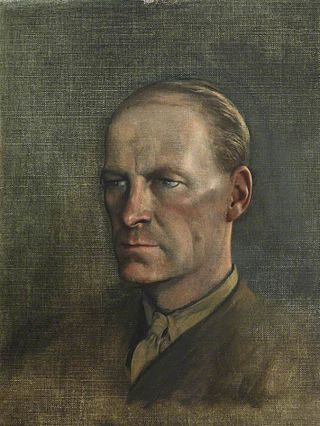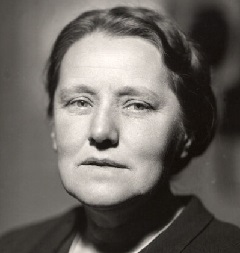Harry Stottlemeier's Discovery [1] is a philosophical novel for children written by Matthew Lipman. The novel was Lipman's first, and inaugurated the educational movement known as Philosophy for Children. It was first published in 1971 and revised in 1974. [2]
The book deals with everyday situations which a group of children encounter. These situations then become the substance for mental engagement and thinking about thinking. Rather than looking for answers, the type of thinking encouraged is about prolonging questioning, and performing self-initiated testing on the events or objects under discussion. There is a focus on how to teach ourselves logic by examining the results of the self-initiated tests. It opens with Harry, the school boy who leads the story, falling asleep in a science class, although "he didn't really fall asleep ... His mind just wandered off". [3] The narrative deals with substantial democratic issues such as "should every child go to school?", and "should every person salute the flag?", along with metaphysical and epistemological issues. [4] [5] [6] Louis Katzner notes that Lipman uses syllogistic rather than propositional logic. [4]
In the early 1970s it entered Montclair Public Schools in New Jersey. [7] Lipman subsequently published an instruction manual to accompany it. [8]
Logical positivism, later called logical empiricism, and both of which together are also known as neopositivism, is a movement whose central thesis is the verification principle. This theory of knowledge asserts that only statements verifiable through direct observation or logical proof are meaningful in terms of conveying truth value, information or factual content. Starting in the late 1920s, groups of philosophers, scientists, and mathematicians formed the Berlin Circle and the Vienna Circle, which, in these two cities, would propound the ideas of logical positivism.

Friedrich Ludwig Gottlob Frege was a German philosopher, logician, and mathematician. He was a mathematics professor at the University of Jena, and is understood by many to be the father of analytic philosophy, concentrating on the philosophy of language, logic, and mathematics. Though he was largely ignored during his lifetime, Giuseppe Peano (1858–1932), Bertrand Russell (1872–1970), and, to some extent, Ludwig Wittgenstein (1889–1951) introduced his work to later generations of philosophers. Frege is widely considered to be the greatest logician since Aristotle, and one of the most profound philosophers of mathematics ever.
Analytic philosophy is an analysis focused, broad, contemporary movement or tradition within Western philosophy, especially anglophone philosophy. Analytic philosophy is characterized by a clarity of prose; rigor in arguments; and making use of formal logic and mathematics, and, to a lesser degree, the natural sciences. It is further characterized by an interest in language and meaning known as the linguistic turn. It has developed several new branches of philosophy and logic, notably philosophy of language, philosophy of mathematics, philosophy of science, modern predicate logic and mathematical logic.
Scientific evidence is evidence that serves to either support or counter a scientific theory or hypothesis, although scientists also use evidence in other ways, such as when applying theories to practical problems. Such evidence is expected to be empirical evidence and interpretable in accordance with the scientific method. Standards for scientific evidence vary according to the field of inquiry, but the strength of scientific evidence is generally based on the results of statistical analysis and the strength of scientific controls.

The Kyoto School is the name given to the Japanese philosophical movement centered at Kyoto University that assimilated Western philosophy and religious ideas and used them to reformulate religious and moral insights unique to the East Asian philosophical tradition. However, it is also used to describe postwar scholars who have taught at the same university, been influenced by the foundational thinkers of Kyoto school philosophy, and who have developed distinctive theories of Japanese uniqueness. To disambiguate the term, therefore, thinkers and writers covered by this second sense appear under The Kyoto University Research Centre for the Cultural Sciences.

Nicholas Rescher was a German-born American philosopher, polymath, and author, who was a professor of philosophy at the University of Pittsburgh from 1961. He was chairman of the Center for Philosophy of Science and chairman of the philosophy department.
Philosophy for Children, sometimes abbreviated to P4C, is a movement that aims to teach reasoning and argumentative skills to children. There are also related methods sometimes called "Philosophy for Young People" or "Philosophy for Kids". Often the hope is that this will be a key influential move towards a more democratic form of democracy. However, there is also a long tradition within higher education of developing alternative methods for teaching philosophy both in schools and colleges.

Gilbert Ryle was a British philosopher, principally known for his critique of Cartesian dualism, for which he coined the phrase "ghost in the machine." He was a representative of the generation of British ordinary language philosophers who shared Ludwig Wittgenstein's approach to philosophical problems.
China is a special case in the history of logic, due to its relatively long isolation from the corresponding traditions that developed in Europe, India, and the Islamic world.
Philosophy is the study of general and fundamental problems concerning matters such as existence, knowledge, values, reason, mind, and language. It is distinguished from other ways of addressing fundamental questions by being critical and generally systematic and by its reliance on rational argument. It involves logical analysis of language and clarification of the meaning of words and concepts.

Originally, fallibilism is the philosophical principle that propositions can be accepted even though they cannot be conclusively proven or justified, or that neither knowledge nor belief is certain. The term was coined in the late nineteenth century by the American philosopher Charles Sanders Peirce, as a response to foundationalism. Theorists, following Austrian-British philosopher Karl Popper, may also refer to fallibilism as the notion that knowledge might turn out to be false. Furthermore, fallibilism is said to imply corrigibilism, the principle that propositions are open to revision. Fallibilism is often juxtaposed with infallibilism.

Lizzie Susan Stebbing was a British philosopher. She belonged to the 1930s generation of analytic philosophy, and was a founder in 1933 of the journal Analysis. Stebbing was the first woman to hold a philosophy chair in the United Kingdom, as well as the first female President of Humanists UK.

Socrates Café are gatherings around the world where people from different backgrounds get together and exchange philosophical perspectives based on their experiences, using the version of the Socratic Method developed by founder Christopher Phillips. The groups model their discussions from the 2001 book of the same name by Christopher Phillips and a guide he also developed. Today, there are hundreds of such gatherings, coordinated by volunteers, worldwide.
Patrick Colonel Suppes was an American philosopher who made significant contributions to philosophy of science, the theory of measurement, the foundations of quantum mechanics, decision theory, psychology and educational technology. He was the Lucie Stern Professor of Philosophy Emeritus at Stanford University and until January 2010 was the Director of the Education Program for Gifted Youth also at Stanford.

Matthew Lipman is recognized as the founder of the contemporary Philosophy for Children movement. His belief that children possess the ability to think abstractly from an early age led him to the conviction that children's education should focus on helping them to improve their reasoning, inquiry, and judgment skills.
The following outline is provided as an overview of and topical guide to epistemology:

Philosophy is a systematic study of general and fundamental questions concerning topics like existence, reason, knowledge, value, mind, and language. It is a rational and critical inquiry that reflects on its own methods and assumptions.

Informal logic encompasses the principles of logic and logical thought outside of a formal setting. However, the precise definition of "informal logic" is a matter of some dispute. Ralph H. Johnson and J. Anthony Blair define informal logic as "a branch of logic whose task is to develop non-formal standards, criteria, procedures for the analysis, interpretation, evaluation, criticism and construction of argumentation." This definition reflects what had been implicit in their practice and what others were doing in their informal logic texts.

Christopher Phillips is an American author, educator, consultant, lecturer, and pro-democracy advocate. He is best known for his 2001 book Socrates Café. Public Radio International called Phillips the "Johnny Appleseed of Philosophy."
Sue Knight is an Australian philosopher, educator and academic whose research focuses on teaching reasoning skills and embedding philosophy within school curricula. She is the author of the Primary Ethics curriculum, which has been offered as an alternative to Scripture in New South Wales public schools for students from Kindergarten to Year 6 since 2010.